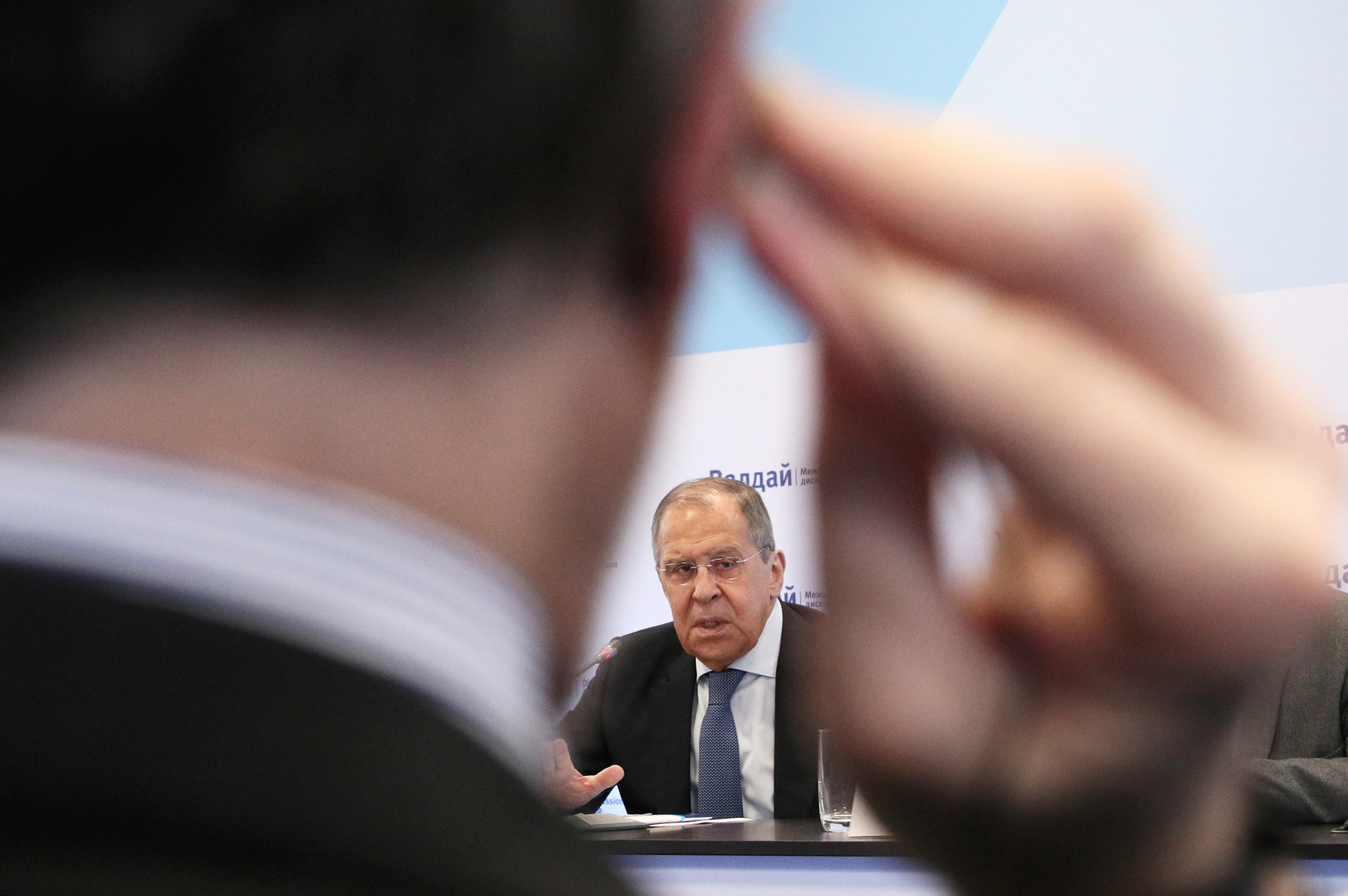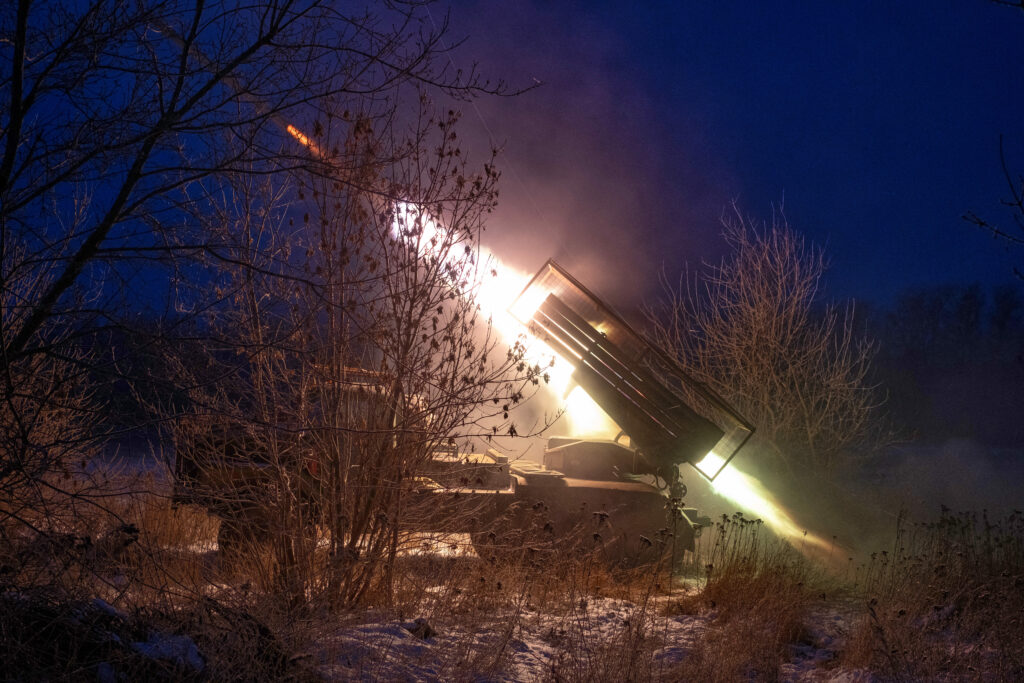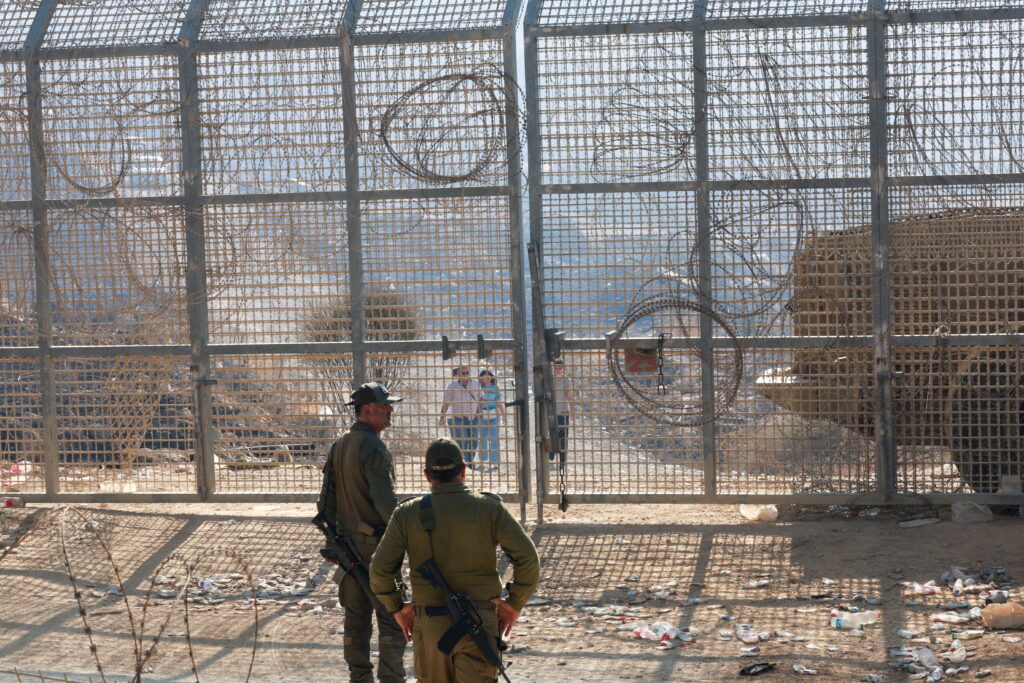At the 10th Middle East Conference of the Valdai Discussion Club on March 31, Russia’s foreign minister Sergey Lavrov repeatedly stressed Russia’s commitment to its “security concept for the Persian Gulf”. Such emphasis came only weeks after Lavrov’s tour to the region, where this concept was also repeatedly put on the table.
Although Russian diplomats are touting it with more vigor and regularity than before, the thrust of this concept are not entirely new. It was actually first presented back in 2019, introduced as a multilateral platform based on respect for sovereignty, territorial integrity, in accordance with internal law and UN charter. And it was meant to foster dialogue across the Gulf: Saudi Arabia and the United Arab Emirates on one side, Iran on the other. Russia has cultivated ties with all parties, so the logic was it could play a role as a mediator.
In the short run, the initiative’s stated goal was to infuse a degree of stability into the Persian Gulf and in the wider Middle East via enhanced consultations between regional actors. It would allegedly help build up confidence between parties, prevent an escalation of tensions and restrain Iran and Saudi Arabia from destabilising activities that are aimed at undermining the other sides’ interests in the Middle East — for instance, the attacks by Iranian-backed Houthis on Saudi oil facilities, which Lavrov has harshly denounced. In the long run, the security concept aimed at giving way to a more institutionalised security and cooperation organisation in the Persian Gulf (PGSCO). This regionalised security system would include international actors such as the EU, the United States, China or India, and could aim at resolving long-standing regional conflicts, notably between Israel and Palestine.
At Valdai this March, Lavrov clarified further what the Russian diplomatic initiative should look like. He indicated that this concept would be “akin to the Helsinki Process” (albeit before it was demolished by the West in Lavrov’s words), ensuring the region will evolve toward “a balance of interests and not become a territory of conflicts among major players once again.” To reach this, the concept would have “inclusivity” and “comprehensiveness” in form and substance. This is to say that it should include from the start not only regional states but also the permanent members of the United Nations Security Council, addressing broad issues of security, economic cooperation, humanitarian aid, military support, and political alignments. For instance, Russia allegedly proposed to the United States to work through the framework of the security concept to negotiate limitations on Iranian activities that were not included in the 2015 nuclear deal — notably Tehran’s support for militia and ballistic missiles programs.
New US-Iran talks
Lavrov’s redoubled security concept fixation during his trip in the Gulf comes at a time of strains between Saudi Crown Prince Mohammed bin Salman and the Biden administration, as well as fresh talks between the US and Iran around a return to the nuclear deal. This context helps explain why Russia is upping the ante. But how far will Russia get its way?
The diplomatic initiative may perhaps appear as the symbol of Russia’s successful positioning in the region. By adopting a pragmatic approach, it has cultivated the capacity to talk to a multitude of contending sides in the Middle East and is hence able to float the idea of multilateralism in Abu Dhabi, Doha, Riyadh and Tehran. Similarly, it can also seem to represent Russia’s increasing clout in the region at America’s expense: while Washington struggles to talk with Iran and is debating the extent to which it should cut ties with Mohammed bin Salman’s Saudi Arabia, Russia promotes discussions and positions itself as a go-between.
However, this view ignores Russia’s glaring limitations. Firstly, while Moscow has successfully managed to maintain dialogue with all Middle Eastern actors and ensure that it has no enemy in the region through careful balancing and focusing on areas of common interests, such a strategy also impedes the formation of any close alliance. Regional actors are wary of moving too close to Moscow; its courting of rivals is no secret. As such, Moscow’s desire to maintain ties with all and corresponding lack of close allies impede its ability to move forward on key issues, most notably Syria.
Rebuilding Syria
Indeed, Russia is seeking greater cooperation with wealthy Gulf states from the region to finance Syria’s reconstruction. Russia welcomed in recent years Abu Dhabi’s attempts to invest in the war-torn country. Lavrov, during his trip to the Gulf, was certainly pleased to hear his Emirati counterpart denounce the American Caesar Act sanctions as an impediment for the UAE’s private sector to coordinate and work with Syria. Riyadh and Abu Dhabi are largely making financial support conditional, however. Both wish to marginalize Iran’s influence in Syria. There is a clear wariness of indirectly helping out Tehran, a Russian interlocutor on the ground in Syria. The inclusion of Tehran and other states around the Gulf joining a common security system to advance Russia’s objective of seeing Syria reconstructed remains a distant dream.
However, for Russia, putting forward its multilateral diplomatic initiative promotes its status of extra-regional balancer in the eyes of Gulf states that have long suspected Russia is a protector of Tehran. Indeed, Russia’s security concept first appeared to be in line with Iran’s approach to regional security and the Hormuz Peace Endeavour (HOPE), Tehran’s own diplomatic initiative presented in the fall of 2019. However, Moscow’s desire to involve all regional actors — including Israel, Tehran’s nemesis — as well as permanent members of the UN Security Council in its security concept runs counter to Iran’s view that security arrangements should be reached only among immediate neighbours in the Persian Gulf.
In that sense, Lavrov’s diplomatic initiative, even if it fails to materialize, is a way to emphasize its neutrality in the region and that its approach to regional security differs from Tehran’s. Thus, Lavrov’s repeated emphasis on the security concept is a low cost effort make Russia as a neutral mediator and overcome Moscow’s greatest limitation: now that the Syrian conflict is frozen, as admitted by Lavrov during his Valdai talk, Syria is so far failing to move forward and rebuild what Russian airstrikes have helped destroy.
Secondly, Russia’s commitment to multilateralism is a way for Moscow to present itself as an actor of global influence and mask economic limitations. Indeed, Russia currently faces the difficulty of reconciling its lack of resources with its claims of being a great power, an external actor co-equal to the US in the Middle East. Actively promoting multipolarity in the Gulf through its ambitious security concept serves Russia’s goal of putting a veil on its diminished capacity by presenting itself as more influential and relevant than it really is. Showcasing an “inclusive” and “comprehensive” diplomatic initiative in the region is meant to ensure that Russia gains a seat at negotiation tables regardless of its limited material resources, hence preserving an aura of great power through the framing of regional debates. Similarly, pushing forward a non-hegemonic arrangement helps Moscow paint U.S sanctions as a contrasting symbol of American unilateralism and overreach.
As such, Russia’s “security concept for the Persian Gulf” should not be considered as a sign of Russia’s willingness to eject the US from the region. Rather, Russia’s commitment to a security concept for the Persian Gulf based on multilateralism is a sign that it is aware of its great limitations. It tries to mask them as best as it can through low cost international diplomatic initiatives seeking to artificially advance its claim of being an influential great-power co-equal to the US. It is a mirage of great power politics.










